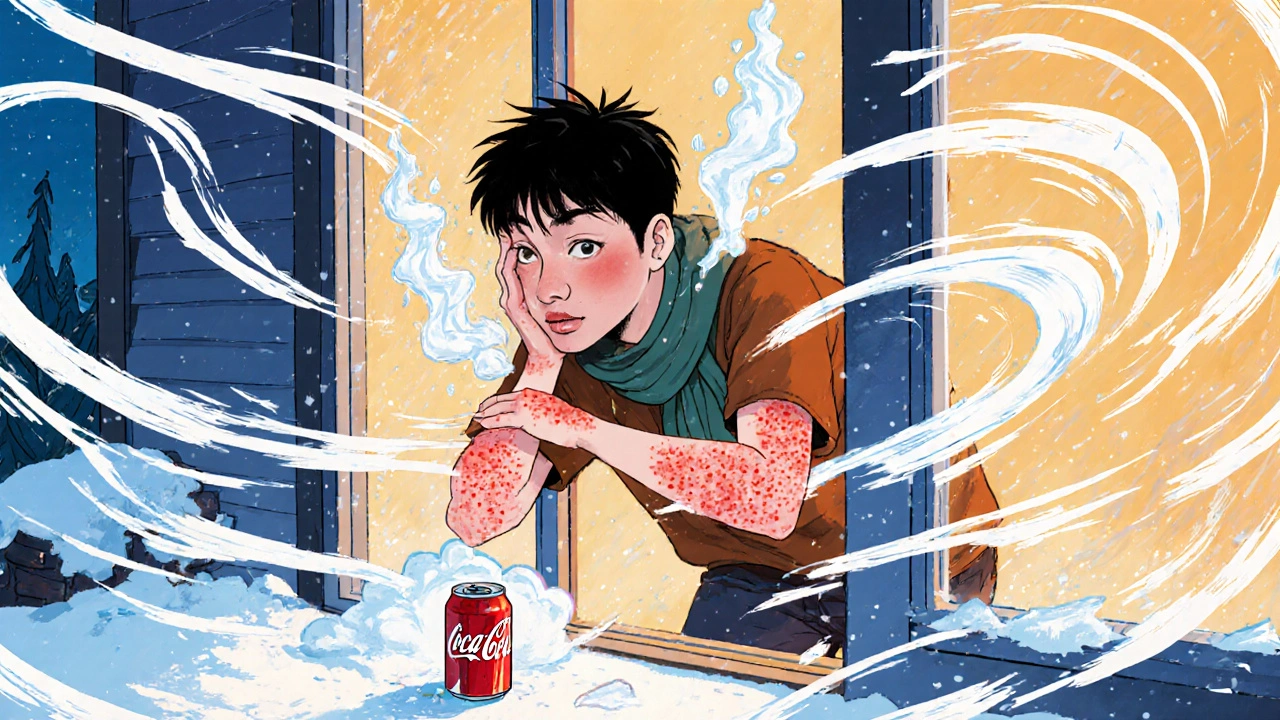Hives from Cold: What Causes It and How to Manage It
When your skin breaks out in itchy, red welts after stepping into a cold room or grabbing an ice-cold drink, you might be dealing with cold urticaria, a condition where exposure to cold triggers an allergic-like reaction in the skin. Also known as hives from cold, it’s not just a mild annoyance—it can turn into swelling, dizziness, or even trouble breathing if you’re submerged in cold water. This isn’t a regular allergy like pollen or peanuts. It’s your body misreading cold as a threat and releasing histamine, the same chemical that makes you sneeze or swell during an allergic reaction.
What makes cold urticaria tricky is that it doesn’t always show up right away. You might feel fine walking outside in winter, then break out in hives 10 minutes later. Or you might get a rash after swimming in a cool pool, even if the water isn’t freezing. Some people only react to sudden temperature drops—like moving from a warm house to a chilly car. Others react to cold objects, like holding a cold soda can. The triggers vary, but the result is the same: raised, burning, itchy patches that can last hours or even days. And while most cases are mild, severe reactions can happen, especially if you’re exposed to large areas of cold, like swimming in cold water. That’s why knowing your limits matters.
There’s no cure, but managing cold urticaria is doable. Antihistamines like cetirizine or loratadine are the first line of defense—they block the histamine your body overproduces. Many people take them daily during colder months just to stay ahead of symptoms. Avoiding sudden cold exposure helps, too. Wear layers, avoid icy drinks, and don’t jump into cold water. If you’ve had a serious reaction before, your doctor might recommend carrying an epinephrine auto-injector, just in case. It’s not about living in a bubble—it’s about knowing how to move safely through the world when your body reacts unexpectedly.
The posts below dive into real-world cases, treatment choices, and practical tips from people who’ve lived with this. You’ll find what works, what doesn’t, and how to talk to your doctor about it without sounding like you’re making it up. No fluff. No guesswork. Just clear, honest info from people who’ve been there.

Cold-Induced Urticaria: What to Do When Hives Appear After Cold Exposure
Cold-induced urticaria causes itchy hives after exposure to cold temperatures. Learn how it works, how to diagnose it, and what treatments actually help-plus safety tips for swimming, winter weather, and daily life.